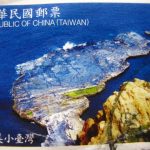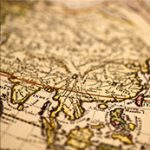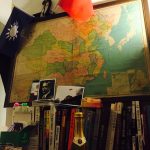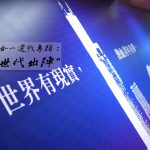發布於 05月11日2025年
1.1K
【NRR Editorial:Not the Next Weimar Republic: Why Eric Chu of KMT Made a Good Point and Should Not Be Silenced 新共和主筆室:不做下一個威瑪共和國──朱立倫為何不該被噤聲?】
注目焦點
- 【藍晒圖|〈吳展良:「孫中山思想:內涵演變與歷史實踐〉搶先看。】11月12日2025年
- 【藍晒圖|〈張智瑋:「數位時代的巨浪,國民黨如何因應?」〉搶先看。】11月07日2025年
- 【藍晒圖|〈施威全:「民族統戰話語,國民黨如何接招?〉搶先看。】10月21日2025年
- 【藍晒圖:重構國民黨黨務改革&人才甄補搶先看。】10月07日2025年
- 【讀者投稿|胖橘約翰:綠媒為何不打鄭?國民黨的死亡預知紀事。】10月05日2025年
- 【藍晒圖|〈吳展良:「孫中山思想:內涵演變與歷史實踐〉搶先看。】
最多人瀏覽
關注我們
圖文藝廊
This error message is only visible to WordPress admins
訂閱我們
















NRR Editorial:Not the Next Weimar Republic: Why Eric Chu of KMT Made a Good Point and Should Not Be Silenced
[International Version in English]
The German institution in Taiwan, the de facto German embassy, like other diplomatic representations, rarely intervenes in the internal political disputes of the island. However, the leader of the largest opposition party, KMT Chairman Eric Chu, was recently criticized by the German institution and accused of making a “historically insensitive comparison” between the lessons of Nazi Germany and Taiwan’s current political situation.
Given the generally pro-Western sentiment in Taiwan and Chu’s well-known U.S. educational background, it is unexpected that the KMT would voluntarily adopt a populist or West-skeptical stance that challenges the historical consensus established in Germany and across the European continent. There should be a reasonable explanation behind this story.
Eric Chu and the KMT argue that the German institution’s criticism missed the point of his remarks. Rather than claiming that Taiwan’s political system has become identical to the Nazi regime that rose after Hitler seized power in 1933, Chu asserted that his intention was to warn against a dangerous trajectory.
Specifically, he highlighted how Hitler and the National Socialist Party once undermined the fragile democratic system of the Weimar Republic—drawing a comparison to how Taiwan’s current ruling party, the Democratic Progressive Party’s (DPP) increasing authoritarian tilt, may be eroding the island’s young but vibrant liberal democracy by stoking hostility toward Mainland China and launching internal political purges based on accusations of being “pro-Communist.”
When examining Taiwan’s current political dynamics, particularly after President Lai took office in May 2024, Chu’s concerns may not be entirely unfounded.
In the ongoing political campaign to “recall” or remove opposition legislators, grassroots organizers aligned with the ruling DPP, as well as the party itself, have accused both the KMT (the largest opposition party) and the TPP (the second largest) of serving as pawns of the Chinese Communist Party.
These claims have been made without judicial evidence or formal investigative processes to support them, yet this has not prevented the continuation of inflammatory accusations and political agitation by the ruling party and its affiliates. The tactic of accusing political opponents of colluding with hostile foreign powers is a well-known form of political witch-hunt, often used in small or medium-sized countries located at the crossroads of major geopolitical blocs—including Taiwan.
This is made all the more concerning by the fact that the DPP received only 36.16% of the vote in the most recent parliamentary election. The KMT garnered 34.58%, and the TPP 22.07%. Calls to oust opposition legislators—effectively nullifying the democratic choices of more than 56% of voters—amount to a direct affront to Taiwan’s electoral integrity.
If the ruling party and its supporters claim that all opposition legislators should be expelled from parliament, this constitutes a serious and troubling denial of the outcome of a transparent and legitimate democratic election.
More troubling still is the growing tendency to weaponise legal and prosecutorial tools in political competition. In addition to the mass recall movement targeting opposition legislators, the weaponization of prosecutorial power has emerged as a new phenomenon during Lai’s presidency. While the courts can be said to have remained generally neutral and independent, the prosecutorial apparatus has been accused of overly intervening in inter-party competition and applying selectively harsher scrutiny to alleged misconduct by opposition politicians. The most symbolic case is the ongoing and controversial prolonged pre-trial detention of Ko Wen-je, the founding chairman of the TPP and a third-place presidential candidate in the 2024 election.
Moreover, since Lai—widely perceived as a hardline proponent of Taiwan independence and perhaps a genuine believer in Taiwanese nationalism—took office in May 2024, inter-governmental relations between Taipei and Beijing have further deteriorated. Military tensions have escalated, and anti-China sentiment within Taiwan has intensified.
Discrimination against Mainland Chinese individuals married to Taiwanese citizens has also worsened significantly. Rather than attempting to de-escalate the emotional and social tensions triggered by rising military and political standoffs, the DPP administration has deliberately—and at times blatantly—manipulated hatred toward China, Chinese culture, and Mainland individuals, transforming this hostility into a political asset for the DPP and President Lai.
This climate—where democratic norms are bent, opposition is vilified, judicial tools are politicised, and identity-based fear is stoked—is eerily reminiscent of the early warning signs from interwar Europe.
In Taiwan’s version, the denial of parliamentary election results from the ruling party DPP, the attempt to expel all opposition legislators, the weaponization of prosecutorial tools amid partisan conflict, and the manipulation of public sentiment and exnophobic and Sinophobic emotion for political gain—these are not entirely irrelevant to the tactics employed by Hitler during his rise to power and the lessons learned from the fall of the Weimar Republic. The comparison to Germany’s Weimar collapse may be uncomfortable, but it is not necessarily invalid.
Contemporary Germany, of course, is right to guard the memory of Germany’s darkest chapter with vigilance and sensitivity. But revisiting the history lesson should not be the exclusive domain of those who lived through it. Lessons from the past belong to all who seek to defend liberal institutions and the openness of civil society. Taiwan, a young democracy at the fault line of regional rivalry and global power competition, needs such lessons more than most.
We fully understand how sensitive and weighty the subject of National Socialism is in German politics and public consciousness. However, drawing lessons from the darkest chapters of history—be it German history or the history of humanity at large—should not be an exclusive privilege of the German government. It is the right, and arguably the obligation, of people anywhere in the world who seek to defend their democratic institutions, preserve a liberal and open civic space, and maintain social unity, tolerance, and cohesion in the face of internal witch hunts and political stigmatization of certain groups of citizens.
The anti-hate legal framework and political mechanisms that have successfully prevented extremist movements from gaining power in post-war Germany are worthy of study and emulation by Taiwan and other young democracies.
Taiwan’s democratic transformation, hard-won and far from complete, depends on the very freedoms that now seem under threat.
Although the political rhetoric of a heavily targeted opposition leader may at times appear more blunt than academically rigorous, which of course is open to debate and examination by all sides—Eric Chu’s right to speak out should not be confiscated. Nor should the substance of his argument be ignored by those who truly care about the hard-won democratic transformation of the island.
Taiwan’s democracy is being weakened by the ruling DPP. This is happening in Taiwan now. If Western countries really value Taiwan’s democracy and believe that we share common values, they should face up to these problems happening in Taiwan now, rather than ignoring them and waiting for Taiwan to become the next Eastern version of the Weimar Republic.
正體中文版:
【新共和主筆室:不做下一個威瑪共和國──朱立倫為何不該被噤聲?】
德國在台協會──德國在台灣實際上的大使館,和其他外交代表機構一樣,一般極少介入這座島嶼上的政治爭議。然而,近日台灣最大在野黨──國民黨的主席朱立倫,卻遭到德國在台協會的公開批評,並指責他進行了「對歷史缺乏敏感度的比較」,意指朱立倫將納粹德國的作為與當前台灣的政治情勢相比較。
然而,在台灣普遍親西方的社會氛圍下,加上朱立倫廣為人知的美國高等教育背景,人們通常並不預期國民黨會主動採取某種民粹式、或“疑西方”的態度,去挑戰在德國和整個歐洲的歷史共識。
在這個故事背後,應該有一個更合理的解釋才是。
朱立倫與國民黨方面解釋說,德國在台協會的批評,誤解了朱立倫發言的原意。國民黨認為,朱立倫並非是要說,台灣現在的政治系統,已經和希特勒在1933年奪權後建立的納粹體制完全一樣了;而是意在對一條危險的路徑提出警訊——特別是針對希特勒和納粹黨在完全掌權之前,是如何一步步破壞威瑪共和脆弱的民主體制的,並以此與台灣現任執政黨民進黨日益顯露的威權主義傾向相較。國民黨和朱立倫指責,民進黨正通過煽動對中國大陸的敵意,並以「親共」指控為由,發動內部政治清洗,從而削弱台灣年輕但充滿活力的自由民主。
若觀察台灣自2024年5月賴清德總統上任後的政治局勢,朱立倫的擔憂並非毫無根據。
在眼下由與民進黨結盟的民間草根組織所發動的「大罷免」行動中,不論是民間的運動者還是民進黨的政治人物,都指控國民黨(台灣最大在野黨)與民眾黨(第二大在野黨)皆是中共的棋子。
雖然這些指控並未提出法律證據,也沒有正式的調查程序來支撐,卻未能阻止執政黨與其聯手的民間力量,持續提出這種帶有煽動性的控訴和政治攻勢。
這種將政治對手污名化為「與外敵通謀」的獵巫手法,在地緣處境敏感、位處強權集團交界地帶的中小型國家中,其實屢見不鮮。台灣亦不例外。
但鑑於民進黨在最近一次的國會選舉中,僅獲得36.16%的選票,這一情勢更令人擔憂了。在最近的國會選舉中,國民黨獲得34.58%的選票,民眾黨則獲得22.07%的選票。而呼籲將所有反對黨的立法委員全部驅逐出國會的呼聲,實際上否定了超過56%選民的民主選擇,這是對台灣選舉正當性的直接挑戰。
如果民進黨和其支持者主張,要把所有的在野黨立委趕出國會,更是一種對透明、合法的選舉結果的嚴重否定。更令人憂慮的是,在政治競爭中,把法律和檢察工具武器化的增長趨向。
除了針對在野立委的大罷免運動外,檢察權的工具化,成為賴政府就任以來的新現象。
雖然台灣的法院整體上來說,仍被視為中立與獨立的;然而,檢察權則被指為對政黨間的競爭過度介入,並且對在野黨政治人物被控涉及的不當行為,施以選擇性的、更為嚴苛的審視標準。其中最具象徵性的案例,莫過於2024年總統大選第三名的候選人、民眾黨的創辦人柯文哲的案件。他至今仍處於爭議性、且不斷延長的審前羈押之中。
此外,自被視為頑強的台獨主張者──甚至可能是台灣民族主義的真誠信徒的賴清德上任以來,兩岸的政府間關係進一步惡化,軍事對峙升高,台灣社會內部的反中情緒亦不斷上揚。
對與台灣公民通婚的大陸配偶的歧視氛圍,亦顯著地惡化。面對因高漲的軍事與兩岸政治對立所引發的社會緊張情緒,賴政府非但未試圖加以降溫,反而刻意──有時甚至是公然地,操作對中國、對中華文化、乃至對中國大陸籍的個人的仇恨情緒,並將這種敵意轉化為民進黨和賴總統的政治資本。
這種氣氛——當民主規範被扭曲、反對派被詆毀、司法工具被政治化、基於身份的恐懼被煽動——令人驚懼地回想起戰間期歐洲的預警信號。
在台灣的版本中,執政的民進黨對國會選舉結果的否認、欲驅逐所有在野黨立委的企圖、在政黨鬥爭中把檢察體系武器化,並操作社會上的仇中排外情緒以謀取政治利益——這些事態,與當年希特勒的奪權過程,和人們能從威瑪共和崩潰過程習得的歷史教訓,並非毫不相關。
把台灣的現狀和德國威瑪共和國的崩潰相較,可能令人不太舒服,但這個比較並不一定是無效的。
今日的德國,當然有其正當的理由,以敏感、戒慎的態度,去守護德國歷史最黑暗一頁的記憶。但汲取歷史的教訓,不應只是那段歷史親歷者的專利。
來自過去的鏡鑑,應該屬於所有意在捍衛自由制度和公民社會開放性的人。而台灣,一個處在區域對抗斷層線上和全球強權競爭之間的年輕民主政體,比大多數國家都更需汲取這樣的教訓。
我們完全理解和「納粹主義」有關的主題,在德國的政治與公共意識中,有多麼敏感和沉重。然而,不論是從德國的,還是全人類的最黑暗的歷史篇章中汲取教訓,不應該僅是德國政府的特權。
在國家內部的獵巫過程中,在對特定公民群體的政治汙名化浪潮下,這應該是世界上所有地方的人們──那些尋求捍衛民主體制、保障自由開放的公民空間,維繫社會的寬容、團結和凝聚力的人們的權利,甚至,應是他們的義務。
德國在二戰之後所建立之反仇恨法制框架,與防堵極端主義運動再次掌權的政治機制,對台灣與其他新興民主國家而言,更是值得研究與借鏡。
台灣的民主轉型來得並不容易,而且遠未完成;而其所憑依的自由,如今似乎正受到威脅。
儘管作為一位頻遭針對的在野黨領袖,朱立倫的政治修辭有時候或許略顯粗糙,搆不上嚴謹的學術標準──而且,這當然是可辯論,也應該被各方所檢驗的。
但是,朱立倫表達其觀點的權利仍不應被剝奪,其論點本身的洞察也不應被忽視——特別是對那些真心關懷台灣得來不易的民主轉型的人而言。
台灣的民主正被執政的民進黨削弱。這樣的事現在正在台灣發生。如果西方國家真的重視台灣的民主,並相信我們擁有共同的價值觀,就應該正視台灣現在正在發生的這些問題,而不是視若無睹,致使台灣變成下一個東方版的威瑪共和國。
更多 全球視野
【一份重構國民黨的新時代倡議:《藍晒圖》 新書發表會。】
【林家興:台灣國防關鍵在預算之外的「3大隱憂」。】
【顧長空:淺談在野黨在大罷免後的國際戰略溝通。】